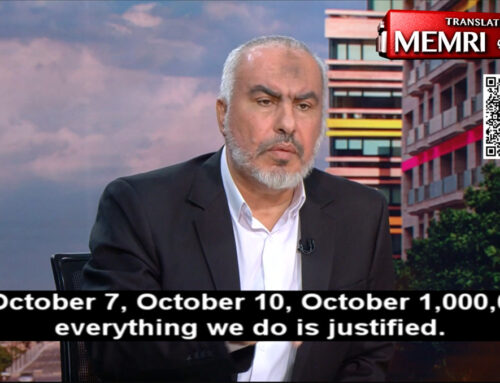Four-in-ten countries and territories worldwide had blasphemy laws in 2019
January 25, 2022
By Virginia Villa
Reprinted from Pew Research Center
Apostasy and blasphemy may seem to many like artifacts of history. But in scores of countries around the world, laws against apostasy and blasphemy remain on the books – and many are enforced to various degrees.
A new Pew Research Center analysis finds that 79 countries and territories out of the 198 studied around the world (40%) had laws or policies in 2019 banning blasphemy, which is defined as speech or actions considered to be contemptuous of God or of people or objects considered sacred. Twenty-two countries (11%) had laws against apostasy, the act of abandoning one’s faith. The analysis draws on the Center’s wider body of research on global restrictions related to religion.
These laws were most common in the Middle East and North Africa, where 18 of the 20 countries (90%) in the region have laws criminalizing blasphemy and 13 of them (65%) outlaw apostasy. In Saudi Arabia, an Indian national was charged with blasphemy in 2019, fined, and sentenced to 10 years in prison for tweeting criticism of Muhammad and Allah, as well as of the Saudi government.
Blasphemy laws were on the books in 2019 in all five global regions covered by the analysis, including 18 countries in sub-Saharan Africa, 17 in the Asia-Pacific region, 14 in Europe and 12 in the Americas. In one instance in Indonesia, a Roman Catholic woman was detained on blasphemy charges for bringing a dog into a mosque. And in Sri Lanka, a playwright was questioned by authorities after a Buddhist monk alleged his work was blasphemous.
Among the 79 countries that criminalized blasphemy, penalties varied widely, from fines to prison sentences and in some cases lashings and execution. In some countries – such as Afghanistan, Brunei, Iran, Mauritania, Nigeria, Pakistan and Saudi Arabia – violations of blasphemy laws can carry the possibility of the death penalty, according to sources used for this analysis. In Pakistan, at least 17 individuals were sentenced to death on blasphemy charges in 2019, including a university lecturer accused of having insulted the Prophet Muhammad verbally and on Facebook, although the Pakistani government has never actually executed anyone for blasphemy.
Some blasphemy laws came off the books in 2019. In New Zealand, a long-standing blasphemy law was repealed in 2019 after media in the country reported that it had not been enforced since 1922. Greece also repealed its blasphemy law in 2019, following campaigns against it by human rights activists.
Meanwhile, in Pakistan, the Supreme Court in 2019 upheld the acquittal of Asia Bibi, a Christian woman who had been sentenced to death for blasphemy, sparking violent protests and calls to execute her. And in Indonesia, the government had considered a bill to expand the criminalization of blasphemy but ultimately delayed it following protests by civil society groups.
In some countries, including Pakistan, Trinidad and Tobago, and Barbados, blasphemy laws date to their periods of British rule. While citizens in Barbados and Trinidad and Tobago did not face criminal penalties for blasphemy charges in 2019, the number of blasphemy charges increased from 2018 to 2019 in Pakistan.
Apostasy laws were less common around the world than blasphemy laws in 2019, existing in just 22 countries and in only three of the five regions studied. Most of the countries with apostasy laws were in the Middle East-North Africa region (13). Seven were in the Asia-Pacific region, and two in sub-Saharan Africa. As of 2019, there were no apostasy laws in existence in Europe or the Americas.
Penalties for abandoning one’s faith also tend to vary depending on the country. In Algeria, people who convert from Islam to another religion are unable to receive inheritances. In 2019, Brunei implemented a law that allows death sentences for apostasy from Islam.
Refer to the “How we did this” box to view the full list of countries with blasphemy and apostasy laws as of 2019.
Note: This is an update of a post originally published July 29, 2016.









Leave a Reply, please --- thank you.